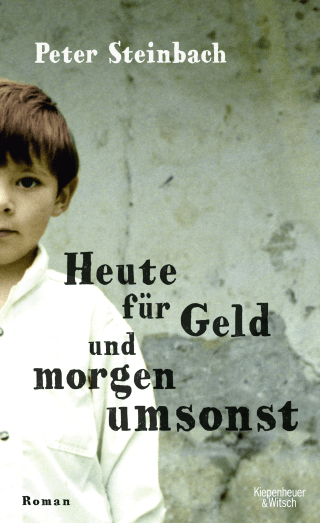Today for Money, Tomorrow for Nothing
Through the eyes of his narrator Osvald, a ten year old boy filled with curiosity and longing, Peter Stein-bach allows us to see the last year of the Second World War in Leipzig in a completely different light.
Osvald hasn’t got it easy but he’s still optimistic. His mother is heavily pregnant, his father is mostly on the road conducting strategic war research, and Osvald is not allowed to go to school. Actually, he is hardly allowed to go out at all, because, if his father wasn’t there any more, he and his Jewish mother wouldn’t exist either. His father’s position prevents their deportation, but it doesn’t protect them from daily discrimination and repeated bombings from the English, who are releasing their cargo over the city again and again.
Osvald observes the goings-on of his contemporaries behind binoculars, buries himself in his books and breaks out again and again; by bike he takes on secret expeditions in the surroundings and gets to know more about the people and what’s going on than one can ever imagine. And, as his mother has to leave the city with her new born baby, Osvald slips undercover at Bredo the Baker’s where he experiences the American invasion, and then later the Russian takeover of the city.
Peter Steinbach narrates incredible war stories from the credible perspective of his young hero, who with wide eyes and great empathy follows what should become daily life. A new voice, that narrates from the distant past with an immense intensity.
‘This novel develops such a tremendous pull and is so charged with experiences, that it has to erupt into a punch line every few sentences. Simply unique!’ (Jan Seghers)
- Publisher: Kiepenheuer&Witsch
- Release: 16.02.2012
- ISBN: 978-3-462-04384-6
- 240 Pages
- Author: Peter Steinbach


